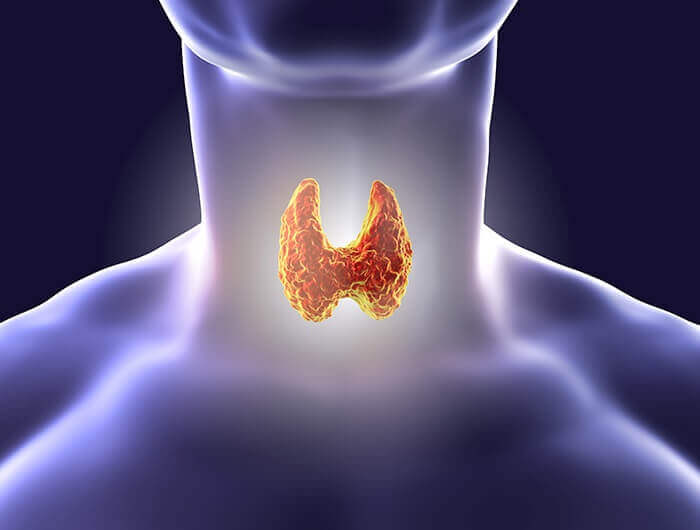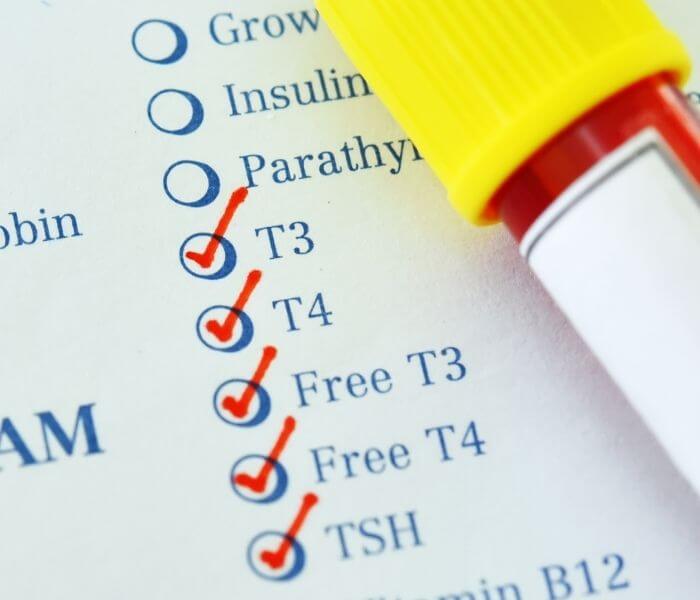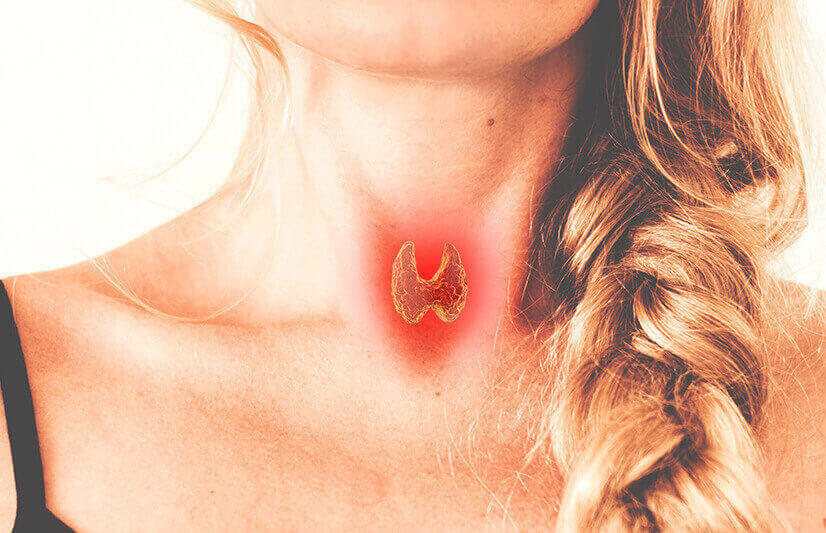5 mins read
What is Graves Disease?

Graves Disease is an autoimmune disorder that affects the thyroid gland. The thyroid gland produces hormones that regulate vital functions in the body, such as metabolism, heart rate and body temperature. In Graves Disease, the immune system produces antibodies that stimulate the thyroid gland to produce more hormones than the body needs, resulting in an overactive thyroid gland (hyperthyroidism).
What is Graves Eye Disease?
Around 20% of people diagnosed with Graves Disease develop a condition called Graves Eyes Disease or Thyroid Eye Disease (TED). It causes the eyes to become more prominent and ‘staring’, as well as inflamed and sore[1].
Causes of Graves Disease
The exact cause of Graves Disease is unknown, but it’s believed to be a combination of genetic and environmental factors. Smoking, stress and infections may also increase the risk of developing the condition. Women are also more likely to develop Graves Disease than men.
Symptoms of Graves Disease
Graves Disease is an autoimmune disorder that affects the thyroid gland, causing it to produce too much thyroid hormone. This can cause a variety of symptoms[2], including:
- Anxiety and irritability: People with Graves Disease may experience feelings of nervousness, anxiety, and irritability.
- Difficulty sleeping: Insomnia and other sleep disturbances are common symptoms.
- Tremors: You may experience tremors or shaking of the hands and fingers.
- Rapid or irregular heartbeat (palpitations): This can be due to the increased activity of the heart.
- Heat intolerance: Your metabolism may increase due to excess thyroid hormone, which can cause your body to produce more heat than it can dissipate.
- Increase in appetite and weight loss: Excess hormones can cause your metabolism to increase, making you hungrier than usual.
- Increase in bowel movements: You may experience an increase in bowel movements.
- Weakness and fatigue: Overstimulation of the nervous system can cause you to feel weak and fatigued.
- Hair loss: Hair loss can occur in people with Graves Disease.
- Changes in menstrual cycle: Women with Graves Disease may experience changes in their menstrual cycle, including lighter or heavier periods, or irregular periods. This is due to the effect of the excess thyroid hormone on the reproductive system.
These symptoms can vary in severity from person to person. If left untreated, Graves Disease can lead to serious complications, such as heart problems and osteoporosis.
Diagnosing Graves Disease
Blood tests are often used to check the levels of thyroid hormones and antibodies in the body. High levels of thyroid hormones and antibodies can be a sign of Graves Disease. Our advanced thyroid blood test checks your thyroid-stimulating hormone (TSH), triiodothyronine (T3) and thyroxine (T4) levels along with Thyroglobulin Antibodies and Thyroid Peroxidase Antibodies (TPO) – everything you need to get a full picture of your thyroid health.
Your doctor might perform an examination to check for signs of an enlarged thyroid gland, which is a common symptom. They may also ask about other symptoms you may be experiencing, such as trembling hands or difficulty sleeping. These symptoms can help to confirm a diagnosis of Graves Disease.
If your doctor suspects that you may have Graves Disease, they may also recommend a scan or ultrasound of the thyroid gland. This can help to identify any abnormalities or nodules in the gland, which can be a sign of Graves Disease.
Graves Disease can be a serious condition if left untreated. If you are diagnosed with Graves Disease, your doctor will work with you to develop a treatment plan that is tailored to your specific needs.
Treating Graves Disease
While Graves Disease can be a challenging condition to manage, there are several treatment options available to help control symptoms and improve quality of life.
One of the most common treatments for Graves Disease is medication. Antithyroid drugs, such as carbimazole and propylthiouracil, can reduce the production of thyroid hormones, helping to bring levels back to normal[3]. Beta-blockers can help manage symptoms such as rapid heartbeat and tremors
In some cases, radioiodine therapy may be recommended. This involves taking a dose of radioactive iodine, which is absorbed by the thyroid gland. The radiation destroys the overactive cells, reducing the production of thyroid hormones. This treatment is effective, but it can take several months to see the full benefits.
Surgery is another option for treating Graves Disease. This involves removing part or all of the thyroid gland. While surgery can be effective, it is usually reserved for cases where other treatments have not been successful or where there is a risk of complications.
There is no one-size-fits-all approach to treating Graves Disease. Your doctor will work with you to determine the best treatment option for your individual case, taking into account your age, overall health, and the severity of your symptoms.
In addition to medical treatments, there are also lifestyle changes that can help manage Graves Disease. Eating a healthy diet, getting regular exercise, and reducing stress can all help improve symptoms and promote overall wellness.
Coping with Graves Disease
Living with Graves Disease can be challenging, but there are steps you can take to manage your symptoms and improve your quality of life. These include:
- Managing stress through relaxation techniques, such as meditation and deep breathing
- Eating a well-balanced diet, rich in nutrients and avoiding foods that may exacerbate symptoms
- Maintaining a healthy weight through regular exercise
- Getting enough sleep and establishing a sleep routine
- Limiting caffeine and alcohol intake
- Participating in support groups and talking with loved ones about your condition
- Following your healthcare provider’s recommendations for treatment and regular check-ups
Managing stress is an important part of coping with Graves Disease. Stress can worsen symptoms and make it more difficult to manage the condition. Practising relaxation techniques, such as meditation and deep breathing, can help reduce stress and improve overall well-being.
Eating a well-balanced diet is also important for managing Graves Disease. Certain foods, such as those high in iodine, can exacerbate symptoms. It is important to avoid these foods and instead focus on a diet rich in nutrients, such as fruits, vegetables, and lean protein.
Participating in support groups and talking with loved ones about your condition can also help. Support groups can provide a sense of community and help you feel less isolated. Talking with loved ones about the condition can also help reduce stress and improve overall well-being.
- Health scores calculated
Close
This information has been medically reviewed by Dr Thom Phillips
Thom works in NHS general practice and has a decade of experience working in both male and female elite sport. He has a background in exercise physiology and has published research into fatigue biomarkers.

Dr Thom Phillips
Head of Clinical Services
Related articles
Like this article? Here are some more based on similar topics.






